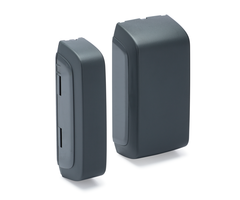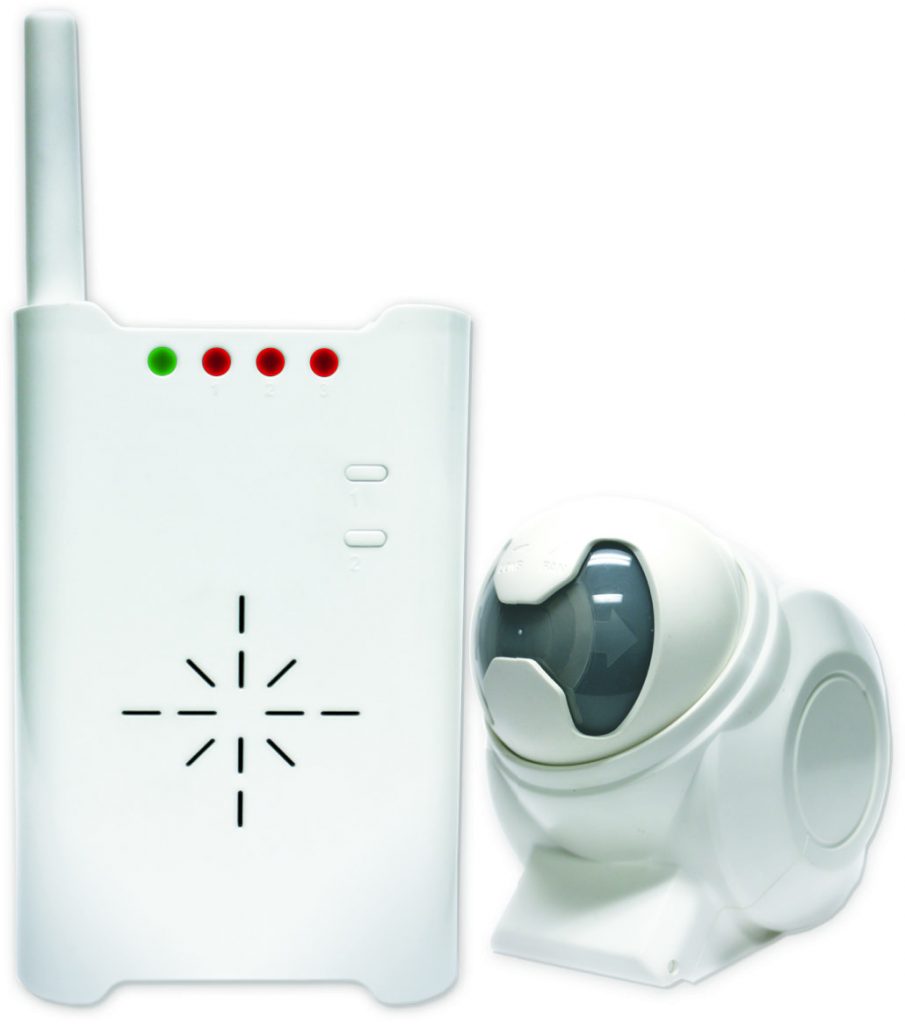When customers come to us for help installing security measures, they usually have certain objectives in mind. For example, customer frequently look to deter crime by installing locks, cameras, and home alarm equipment. Additionally, in the case of cameras, these devices can also help solve any crime that does occur. While working with customers to make their security ideas a reality, we often surprise customers with ideas of our own. In particular, our weatherproof home security measures help provide a unique level of exterior security. In this post, we share some ideas to help you achieve security both in and outside of your home!
First, we’ll detail some security equipment that we can add onto your existing burglar alarm. We can add a couple different types of security contacts outside of your home without worrying about weather-related damage. Then, we’ll shift our focus to unique cameras that have specific outdoor-usage ratings. Finally, we’ll look at a type of security product that alerts you to activity in your driveway. Installing a driveway alert system can add tremendous security to your home in a couple different ways. Now, let’s get started by sharing some unique alarm-connected outdoor security sensors.
Weatherproof Security System Contacts
Most of our security system customers consider the security provided by their alarm as strictly “interior” in nature. However, modern alarm equipment allows us to use security contacts to secure the outside of customers’ homes as well! How does this work? Well, you may remember us discussing long-range wireless security contacts in our post sharing The Benefits of Wireless Security. In particular, that post praises the long-range wireless transmission provided by Power G Sensors by DSC. Our preferred wireless contact, these security sensors can communicate with panels inside your home, even when installed outside your home. This allows us to secure unattached garages and sheds with no problem. Furthermore, it also allows us to install sensors in your yard, even in the elements. In this section, we’ll share a couple types of sensors that you can use outside with no issues!
Outdoor-Rated Door Sensors
The advent of weatherproof door sensors lets customers get quite creative with their security contact installations. Some outdoor installation locations do not necessarily put contacts in direct contact with bad weather. For example, the shed and garage door locations mentioned earlier generally allow us to install the sensors themselves indoors. However, the extreme temperatures present in these applications often prove harmful for non-outdoor rated contacts. For this reason, we recommend installing weatherproof home security sensors in any non-insulated locations.

Weatherproof door contacts, such as this Power G model by DSC, allow our alarm customers to experience unique outdoor security.
Additionally, we can even install door sensors on locations that do directly experience rain and snow. For example, pool gates and fence doors make great landing places for these sensors. Both of these locations can represent security threats to people or even pets if you fail to track activity. Combined with our favorite cellular dialer powered by Alarm.com, installing these sensors even allows you to set up an alert on your smartphone any time these locations experience activity. Therefore, you can set up a notification for any unexpected activity around your home, even before anyone approaches the house itself. Additionally, you can also make sure your pets stay in the yard and kids stay away from your pool, even while you are away from the home! Now, let’s look at some possible applications for exterior motion detectors.
Motion Detectors for Exterior Use
Traditionally, we’ve advised our customers to stay away from installing motion detectors outdoors or in areas that experience extreme temperatures. However, modern improvements have made this unique weatherproof home security measure much more reliable. For starters, the weatherproof nature of these detectors allows us to install them in applications that experience temperatures as low as 40 degrees below zero! Obviously, this makes garage, shed, basement, or any other unattached installation location no problem.
Additionally, the Power G outdoor motion detector has built-in technology designed to elminate false alarms. In the past, birds, squirrels, and changes in heat could trip motion detectors installed outside. This detector greatly cuts down on the chances of these nuisance alarms occurring. Furthermore, this detector also has the ability to distinguish between a person, an animal below 40 pounds, and a swaying tree or bush. This feature set makes it an ideal product to add some exterior security to any home with an alarm system. In the next couple sections, we’ll also examine some non-alarm related outdoor security equipment. Next up, we’ll explain how camera manufacturers design cameras to withstand very specific harsh conditions!
Cameras with Outdoor Security Ratings
Part of our job as security professionals involves choosing the right cameras for each application. This can ensure the durability of the camera in its environment. It can also help you keep your surveillance system as cost-efficient as possible. For example, a camera meant for indoor use will not last very long in difficult outdoor conditions. On the other hand, we also do not recommend installing a camera designed for outdoor use indoors. If you do so, you may end up paying for features that you do not use.
One way to make sure you select the proper camera is by checking its “IP Rating.” The “IP” stands for “Ingress (or ‘Entrance’) Protection.” A camera’s IP rating is shown with the letters “IP” followed by two digits with varying values (e.g. “IP 67”). The higher the number of each digit, the more resistance provided by the camera. The first digit represents protection against solid objects, on a 0-6 scale. To achieve a “6” on this scale, an object must display resistance to dust. Most cameras are dust-tight, so almost every camera has an IP rating that starts with a “6.” The second digit generally ranges from a “5” to an “8.”
An IP65 camera can withstand jets or sprays of water, while an IP68 camera can withstand continuous water submersion under specific conditions. Obviously, IP66 and 67 cameras lie in between those two extremes. If you do have reason to believe your cameras face potential weather or element damage, we recommend cameras with an IP67 or IP68 rating. Doing so will ensure that your cameras can withstand the wear and tear of outdoor use for years to come. Last but not least, let’s see how driveway alert systems can give you valuable alerts for acivity outside your home.

A driveway alert system, such as this model by Optex, provides weatherproof perimeter security for your home.
Driveway Alert Systems
Many homeowners look for devices that can alert them to motion outside their homes. Driveway alert systems, such as the Optex motion detection system pictured, can let you know when a person or large animal passes in front of the detector. This type of system is perfect for those with home offices that receive work-related shipments to their home address. Installing the motion detector at the end of your driveway and plugging the sounder inside the house is the perfect way to receive an alert as deliveries arrive.
Additionally, homeowners with long driveways also like knowing when drivers of cars use their driveway to turn around or, in some cases, stop to scope out the property for a potential burglary at a later date. The weatherproof motion detectors that activate this type of system provide useful long-range motion detection wherever customers install them. Therefore, they provide a perfect fit for anyone looking to add weatherproof home security to their property’s perimeter!
Finding the Weatherproof Home Security Measures that Work for You
We hope that this post helps you find some weatherproof home security equipment that works for you. Moreover, we encourage you to contact us with any questions you may have about the material in this post. We will happily answer any security-related inquiries you may have. Additionally, we also invite you to take advantage of our free site survery program. We offer complimentary security audits and equipment quotes for both new and existing customer alike. While onsite, we can address any existing security concerns you may have. Furthermore, we can make suggestions of our own based on observations we make during our visit.
Perhaps you have some indoor security measures in place, and wish to add some exterior security as well. Or, maybe you have yet to add anything in the way of home security, and want to take advantage of the opportunity to build it right from the ground up. Either way, we are here to help. Together, we can create a security plan that keeps your home as safe and secure as possible — inside and out!
